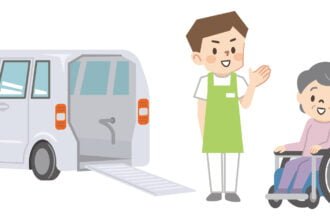If you have served  as a caregiver to persons of advanced age in the past or in a professional setting, you have likely seen unfortunate cases of unexplained, sudden decline. It may be precipitated by a loss, change in environment or other event, yet it is always quite shocking to watch a fully grown, accomplished person seem to waste away – body, mind, and spirit.
as a caregiver to persons of advanced age in the past or in a professional setting, you have likely seen unfortunate cases of unexplained, sudden decline. It may be precipitated by a loss, change in environment or other event, yet it is always quite shocking to watch a fully grown, accomplished person seem to waste away – body, mind, and spirit.
If you have served  as a caregiver to persons of advanced age in the past or in a professional setting, you have likely seen unfortunate cases of unexplained, sudden decline. It may be precipitated by a loss, change in environment or other event, yet it is always quite shocking to watch a fully grown, accomplished person seem to waste away – body, mind, and spirit.
as a caregiver to persons of advanced age in the past or in a professional setting, you have likely seen unfortunate cases of unexplained, sudden decline. It may be precipitated by a loss, change in environment or other event, yet it is always quite shocking to watch a fully grown, accomplished person seem to waste away – body, mind, and spirit.
Failure to thrive, a syndrome better known in the world of pediatrics, refers to the physical and emotional deprivation that signifies a deficiency in growth and healthy functioning. As it pertains to the geriatric population, “adult failure to thrive” (AFTT) or failure to thrive in the elderly is a diagnosis that signals significant mental and physical decline.
Instances of failure to thrive increase with age and are associated with skyrocketing medical care costs. Elderly patients with failure to thrive have increased risk of infection and disability, which drastically heighten mortality.
In many cases, AFTT is caused by complications or losses from one or multiple chronic conditions. For example, a person with cancer may experience side effects with treatment and the course of the disease that contribute to AFTT. A number of medical comorbidities, medications, and psychological factors commonly contribute to failure to thrive.
What are the symptoms of failure to thrive?
According to The Institute of Medicine, failure to thrive late in life is a syndrome manifested by weight loss, decreased appetite, poor nutrition, and inactivity, often accompanied by dehydration, depressive symptoms, impaired immune function, and low cholesterol levels.
Older adults with failure to thrive may also suffer with impaired physical function and cognitive impairment.

What can caregivers do about Adult Failure to Thrive?
- Medication review – Review the medicines your loved one is taking to check for any side effects or interactions that could possibly contribute to failure to thrive.
- Diet supervision – Be sure your loved one is eating properly and adhering to a nutritious diet. Check with your physician to see if vitamins or nutritional supplements can fill the gaps.
- Activity – If possible, take your loved one for walks outside or on trips to run errands like the grocery store. If the person is bed-bound, play a board game or complete a puzzle.
- Communication and interaction – Failure to thrive can result from a lack of social stimulation. Encourage your loved one to phone friends. Visit when you can and ask a neighbor or friend to stop by when you can’t. Spark conversation by asking thoughtful questions. More importantly, listen attentively to the response and scan for any fears, needs, or wants expressed so that you can help make the person as comfortable as possible.
Have you had any experience personally or professionally with adult failure to thrive syndrome?








